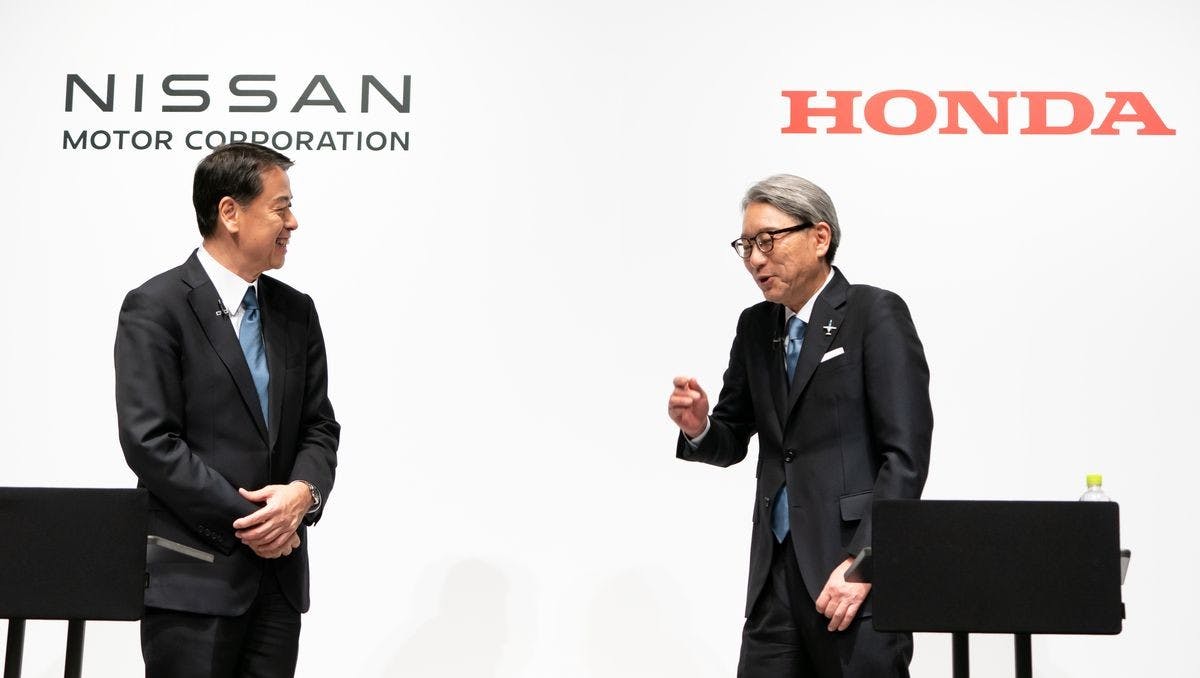
Merging Lanes: Honda and Nissan’s Road to Collaboration
The automotive industry may be on the cusp of a transformative shift as reports from Japan's Nikkei financial newspaper suggest that Honda and Nissan are entering negotiations for a merger. If realized, this union could create one of the world's largest automakers, ranking behind giants like Toyota and Volkswagen. For Nissan, struggling under significant financial strain, this could represent the lifeline it desperately needs.
The Current State of Nissan
Nissan's financial woes have been well-documented, with reports indicating that the company might have only about a year left to stabilize before facing potential collapse. Over the past decade, U.S. sales have dropped by 25%, and the company’s lineup is showing its age. While the 2022 launch of the refreshed Z brought a momentary boost to morale, core models like the Rogue have failed to deliver consistent performance.
Amid this turbulence, Nissan has taken steps to address its challenges. The company has reduced its workforce, restructured its corporate operations, and seen CEO Makoto Uchida voluntarily take a 50% salary cut. Despite these efforts, the situation remains precarious, and a partnership with Honda could be the key to long-term survival.
Why Honda and Nissan Make Sense Together
One of the most compelling aspects of this potential merger is the opportunity for both companies to benefit from technology sharing and streamlined production processes.
1. Hybrid and EV Collaboration
Honda’s extensive experience in hybrid technology could prove invaluable to Nissan, which has announced plans to introduce both conventional and plug-in hybrids for models like the Rogue. Honda’s hybrid expertise, honed through vehicles like the first-generation Insight and the new Civic Hybrid, could accelerate Nissan’s transition to a greener lineup.
Conversely, Nissan’s leadership in electric vehicle (EV) technology could be a boon for Honda. While the Leaf and its successor, the Ariya, have had their share of challenges, Nissan’s EV expertise could complement Honda’s ambitions in the segment. By combining resources, the two companies could position themselves as strong competitors in an increasingly electrified market.
2. Streamlined Production
A merger would allow Honda and Nissan to consolidate manufacturing and supply chains, reducing costs and increasing efficiency. Nissan’s ongoing restructuring efforts could dovetail with Honda’s operational strengths, creating a leaner, more competitive organization.
3. Strategic Responses to Market Trends
The automotive industry is rapidly evolving, with Chinese automakers making significant inroads and partnerships like the Hyundai-GM alliance reshaping the competitive landscape. A Honda-Nissan merger could provide the scale and resources necessary to fend off these challenges and thrive in a changing market.
The Mitsubishi Factor
Another intriguing aspect of this potential merger is the role Mitsubishi might play. While Nissan recently divested a significant portion of its stake in Mitsubishi, there are indications that these shares could be reacquired as part of the deal. If Mitsubishi is brought into the fold, it would add another layer of complexity and opportunity, potentially creating a formidable three-way alliance.
What This Could Mean for Consumers
While a merger of this magnitude could have wide-ranging implications, it’s likely that both brands would maintain their distinct identities. Here are some potential outcomes:
- Product Line Differentiation: Nissan has been phasing out sedans, creating room for Honda’s Civic and Accord to dominate that space. Meanwhile, Nissan could focus on reviving models like the Xterra to compete in the SUV segment.
- Exciting New Models: A combined R&D effort might pave the way for iconic vehicles like a new NSX or GT-R. Enthusiasts can dream of innovative crossovers, such as an electric Kicks Type R or a Pilot CrossCabriolet.
- Enhanced Technology: Consumers could benefit from the best of both worlds, with Nissan’s EV technology and Honda’s hybrid systems leading to more advanced and efficient vehicles.
A Step Towards the Future
Honda and Nissan have already announced plans to collaborate on EV technologies, signaling a willingness to work together in the face of industry challenges. While the merger remains unconfirmed, its potential to reshape the automotive landscape is undeniable. With shared resources, streamlined operations, and a focus on innovation, the combined entity could become a powerhouse capable of navigating the complexities of the modern market.
As the industry braces for a wave of change driven by electrification, automation, and global competition, this merger could be the catalyst for a new era of automotive excellence. Whether it’s a revitalized Nissan Rogue or a cutting-edge Honda EV, the possibilities are endless—and exciting.
Stay tuned for more updates as this story develops. One thing is certain: the automotive world is watching closely, and so should you.








